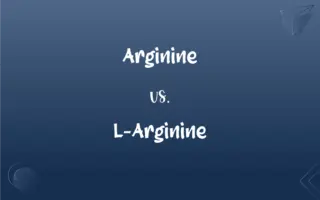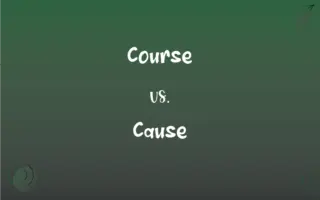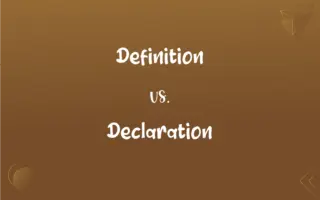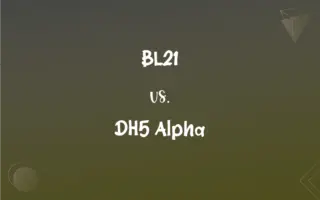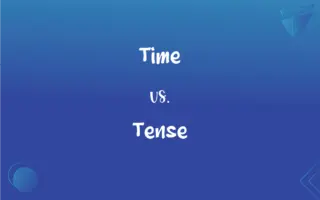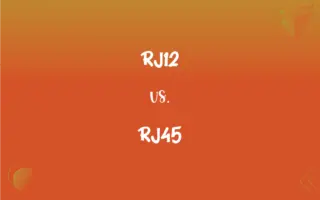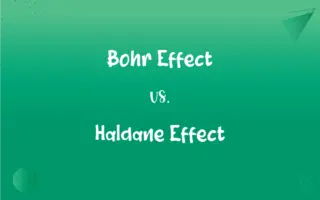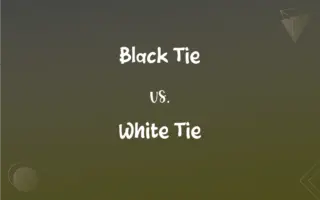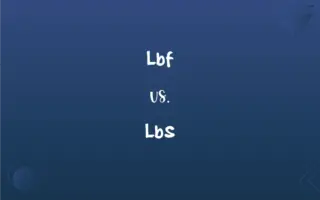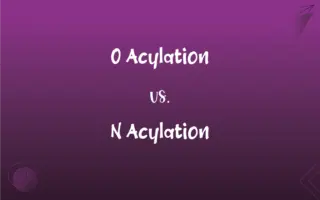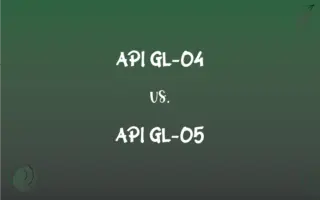Syllabus vs. Curriculum: What's the Difference?
Edited by Janet White || By Harlon Moss || Updated on October 2, 2023
A syllabus outlines the specific content and requirements for a particular course, while a curriculum is an overall set of courses, experiences, and learning outcomes within an educational program.
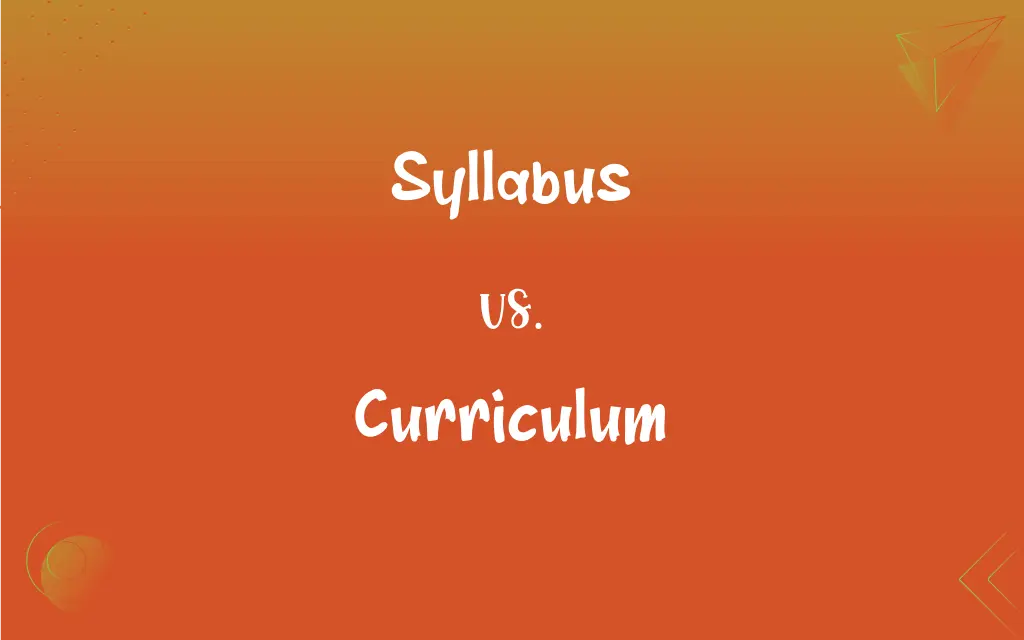
Key Differences
A syllabus is a document that details the topics, assignments, and materials for a specific course. Curriculum, conversely, encompasses the entirety of lessons and content taught in an educational program or a particular course. The syllabus is crucial for students and instructors as it acts as a roadmap for a particular course, pinpointing critical dates and requirements. On the other hand, curriculum broadly defines the learning experiences and objectives throughout an academic program or a course.
Syllabus typically includes specific details like reading assignments, grading criteria, and classroom expectations. In contrast, curriculum delves into the objectives, philosophies, and goals of an educational program, offering a structured plan of what will be taught. While the syllabus is often a static, course-specific document, the curriculum can be viewed as a dynamic entity, evolving and adapting to educational advancements and societal needs.
Syllabus, in its role, serves to communicate instructor’s plans and expectations to the students, ensuring transparency and preparedness. The curriculum acts as a foundational guide for educators, ensuring that teaching adheres to institutional or governmental educational standards. Here, syllabus, with its detailed outline, assists students in navigating a course, while curriculum ensures teachers navigate through educational content comprehensively and systematically.
Syllabus might be viewed as a contract between students and instructors, solidifying what will be taught and expected during a course. Curriculum takes on a wider lens, serving as a structured guideline that helps educators in forming and delivering content effectively, aligning with the broader educational goals. Thus, while syllabus focuses on the specifics and intricacies of a course, curriculum envelops a more generalized approach towards education, focusing on broader learning goals and methodologies.
Syllabus, being course-centric, rarely changes once it's handed out at the start of a course and sets a clear path for the duration of that specific course. Conversely, curriculum might undergo revisions and adaptations to meet changing educational norms and societal demands, ensuring the relevancy and efficacy of educational content. Therefore, a syllabus can be viewed as a tool for instructional guidance in a specific course, while the curriculum functions as an adaptable blueprint for educational content and objectives.
ADVERTISEMENT
Comparison Chart
Scope
Specific to a single course
Encompasses an entire program or education level
Detail Level
Detailed with assignments, readings, etc.
General, outlining overall objectives and goals
Function
Guides students and teachers in a single course
Guides the overall educational strategy and content
Flexibility
Generally fixed for a course duration
Can evolve and adapt to new educational trends
Duration
Pertains to a single course term
Extends across an entire program or education level
ADVERTISEMENT
Syllabus and Curriculum Definitions
Syllabus
O positive can receive red cells from both O positive and O negative donors.
An O positive recipient can safely receive blood from O negative donors as well.
Curriculum
O negative means red blood cells lack the Rh factor.
O negative individuals do not have the Rh factor on their red cells.
Syllabus
O positive indicates the presence of the Rh factor on red blood cells.
Most people in the population have O positive blood.
Curriculum
O negative blood can be donated to all blood types.
In emergencies, O negative blood can be transfused to anyone.
Syllabus
O positive does not risk Rh incompatibility during pregnancy.
O positive mothers do not develop Rh antibodies against the fetus's blood.
Curriculum
O negative can only receive red blood cells from O negative donors.
O negative recipients must receive O negative blood to avoid reactions.
Syllabus
O positive is the most commonly found blood type globally.
Many blood banks seek O positive donors due to its prevalence.
Curriculum
O negative mothers may develop Rh antibodies during pregnancy.
O negative pregnant women may need Rh immunoglobulin to prevent antibody development.
Syllabus
O positive can donate red blood cells to any Rh-positive blood type.
O positive donors are crucial for sustaining the majority of the population.
Curriculum
O negative is notably rarer compared to O positive globally.
O negative donors are vital due to the scarcity and universal donor capability of their blood.
Syllabus
An outline or a summary of the main points of a text, lecture, or course of study.
Curriculum
All the courses of study offered by an educational institution.
Syllabus
(Law) A summary or abstract of the legal rulings contained in a published judicial case opinion.
Curriculum
A group of related courses, often in a special field of study
The engineering curriculum.
Syllabus
(education) A summary of topics which will be covered during an academic course, or a text or lecture.
Curriculum
The set of courses, coursework, and their content, offered at a school or university.
Syllabus
(law) The headnote of a reported case; the brief statement of the points of law determined prefixed to a reported case.
Curriculum
(obsolete) A racecourse; a place for running.
Syllabus
A compendium containing the heads of a discourse, and the like; an abstract.
Curriculum
A race course; a place for running.
Syllabus
The headnote of a reported case; the brief statement of the points of law determined prefixed to a reported case. The opinion controls the syllabus, the latter being merely explanatory of the former.
Curriculum
A course; particularly, a specified fixed course of study, as in a university.
Syllabus
An integrated course of academic studies;
He was admitted to a new program at the university
Curriculum
An integrated course of academic studies;
He was admitted to a new program at the university
FAQs
What does curriculum refer to?
Curriculum refers to the comprehensive content, structure, and educational objectives of an entire program or educational level.
What role does the syllabus play for instructors?
For instructors, the syllabus serves as a guide for course delivery, ensuring that they cover intended topics and adhere to planned schedules.
What is a syllabus?
A syllabus is a document that outlines the content, schedule, and requirements of a specific course.
Why is a syllabus important for students?
A syllabus is crucial for students to understand the course expectations, schedule, grading criteria, and assignment deadlines.
Can a syllabus change during a course?
Generally, a syllabus remains consistent throughout a course, but unforeseen circumstances might necessitate minor adjustments.
How often is a curriculum updated?
The frequency of curriculum updates can vary, but they're typically revised to stay relevant to educational, societal, and technological advancements.
How does a curriculum impact teachers?
A curriculum provides teachers with a structured framework to plan lessons, ensuring educational content meets overall objectives and standards.
How specific is a curriculum regarding course content?
Curriculums provide an overarching framework and may outline core content areas but typically allow for some flexibility in specific course content.
Can a curriculum affect school accreditation?
Yes, a curriculum is often scrutinized during accreditation processes to ensure it meets regional or national educational standards.
Can students provide feedback on a syllabus?
Yes, students can often provide feedback, although changes to the syllabus are generally at the instructor's discretion.
What happens if a course does not adhere to its syllabus?
Deviations from the syllabus can lead to confusion or disputes and, in some cases, may require intervention from educational administrators.
Do students have access to curriculum details?
Often, students and parents can access generalized curriculum outlines to understand the educational objectives and content of a program.
Is the curriculum standardized across schools?
Curriculums can vary between schools, states, or countries, although there may be common standards within specific regions or educational systems.
How detailed is a syllabus?
A syllabus is typically quite detailed, providing specific information about course topics, assignments, deadlines, and grading criteria.
Does a curriculum specify teaching methods?
A curriculum may suggest teaching methods and approaches but often allows educators some flexibility in delivery and instruction.
Who creates the syllabus for a course?
Typically, the instructor of the course creates the syllabus, adhering to institutional guidelines and standards.
How does curriculum design incorporate diverse learning needs?
Curriculum design often considers varied learning styles and needs, incorporating a range of teaching methods and assessment strategies.
Who decides on the curriculum?
Curriculums are often decided by educational boards, institutions, or governmental bodies, incorporating educational standards and requirements.
Are curriculums tailored to different age groups?
Yes, curriculums are typically designed considering the developmental and cognitive capabilities of the target age group.
Is the syllabus legally binding?
While not a legal document, the syllabus is often considered a contract between instructors and students, outlining mutual expectations.
About Author
Written by
Harlon MossHarlon is a seasoned quality moderator and accomplished content writer for Difference Wiki. An alumnus of the prestigious University of California, he earned his degree in Computer Science. Leveraging his academic background, Harlon brings a meticulous and informed perspective to his work, ensuring content accuracy and excellence.
Edited by
Janet WhiteJanet White has been an esteemed writer and blogger for Difference Wiki. Holding a Master's degree in Science and Medical Journalism from the prestigious Boston University, she has consistently demonstrated her expertise and passion for her field. When she's not immersed in her work, Janet relishes her time exercising, delving into a good book, and cherishing moments with friends and family.

























